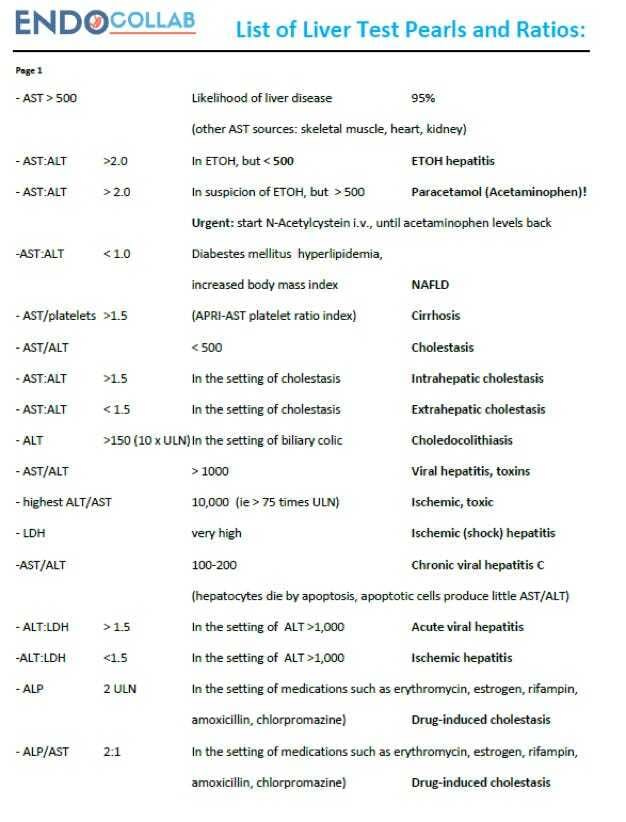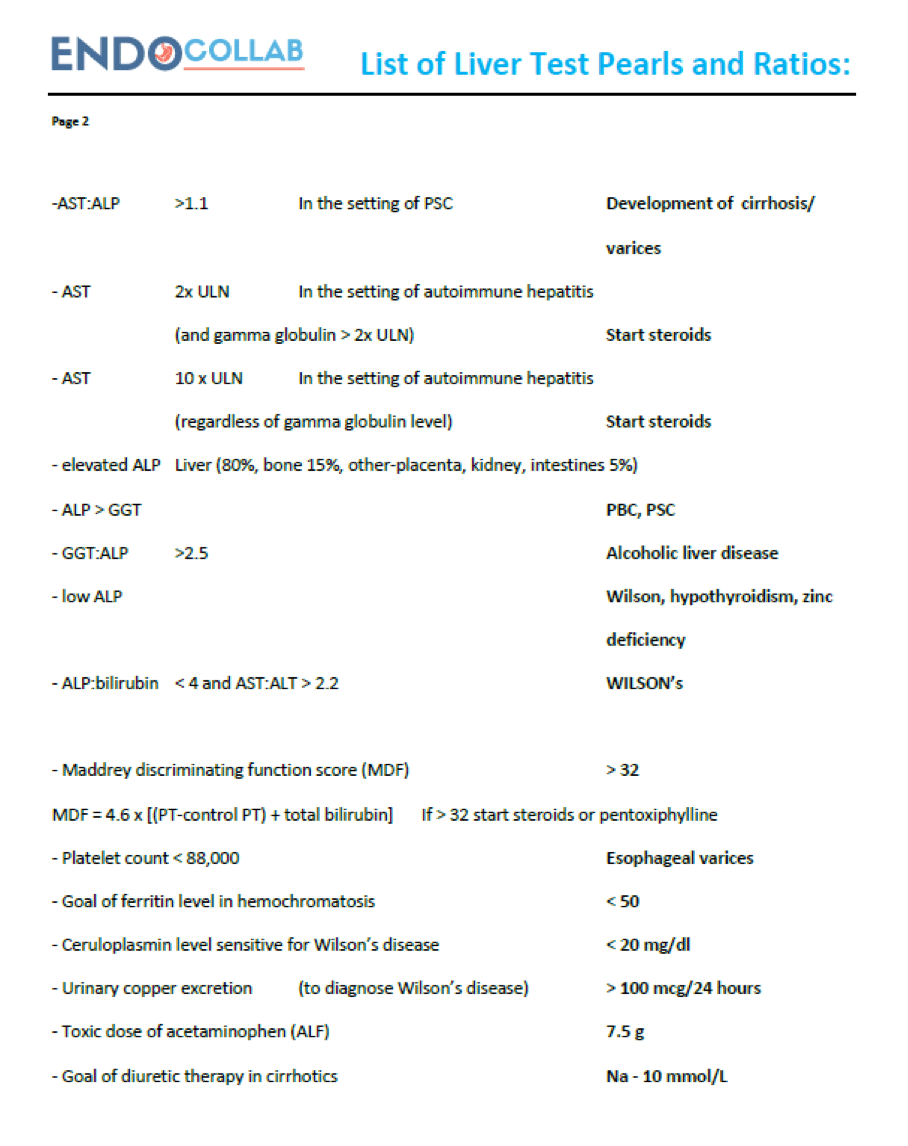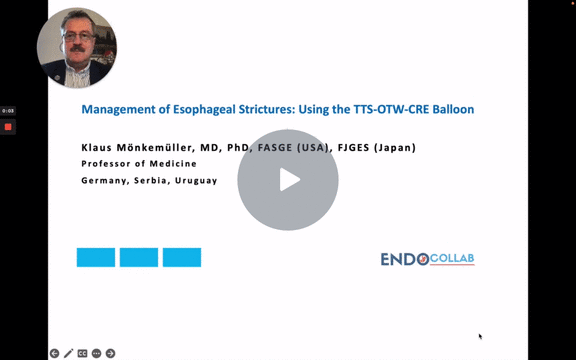Liver Tests and Ratios – a Practical Summary

Knowledge of liver tests are essential for the daily practice of gastroenterology and endoscopy. The response of the liver to various types of injury varies and is often reflected by differentiated elevation of different liver tests.
Classic examples are a ratio of 2:1 of AST:ALT in alcohol-induced liver injury, however, with AST rarely surpassing 50 IU/L, unless there is an additional insult, such as acetaminophen.
Also, often we are called to the intensive care unit to evaluate patients with massive elevations of transaminases, often in the 10,000s. In these situations think ischemic hepatitis! This is usually confirmed by a marked elevation of LDH.
One of the most common misdiagnosis in the emergency room department in patient with abdominal pain and elevated liver tests is “hepatitis”, when indeed a patient has choledocolithiasis. In this scenario, the ALT can elevate several-fold, of course, wrongly mimicking “hepatitis”.
I hope this summary of liver tests, rations and some other liver-related values is useful for your practice. Of course, this list just represent a broad collection of data, based on clinical experience and literature review, especially for GI board preparation and does not constitute a certified guideline. Please feel free to add, correct and comment as needed. I am happy to receive feedback to continue expanding this list.

New Video On EndoCollab

Dilation of Esophageal Strictures Using Balloons
Esophageal Dilators: Four Types
Controlled-radial expansion (CRE) balloons
Ways of Passing the Wire: a) Passed the Stricture or b) “Blindly"
If advancing “blindly" consider using fluorscopy
Advancing “blindly" consider using the u or flipped wire technique
Do not advance wireless balloon or Savary blindly
Using the CRE-TTS-OTW* Balloon
Esophageal Dilation Using TTS-OTW Balloon
A big thank you to this week's sponsor who helps keep this newsletter free for the reader:
DigestiveJobs.com - Find gastroenterology, hepatology and endoscopy careers worldwide. Post your GI job FREE this month! Visit DigestiveJobs.com

